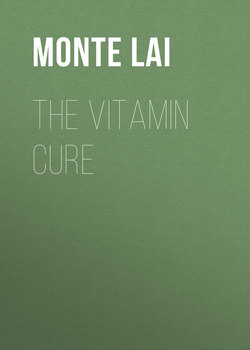Читать книгу The Vitamin Cure - Monte Lai - Страница 29
На сайте Литреса книга снята с продажи.
Vitamin D Supplements
Оглавление• Dosage. The most common dosages of vitamin D supplements are 400–5,000 IU, which largely exceed the recommended dietary allowance. Two types of vitamin D supplements are vitamin D2 and vitamin D3. Vitamin D2 comes from plant-based foods and vitamin D3 from animal-based foods. Vitamin D2 and vitamin D3 are similar, although D3 is more potent than D2. Ultraviolet B rays from sunlight trigger the skin to produce vitamin D3, but fish liver oil and deep sea fish are also excellent sources of vitamin D3. Vitamin D supplements in the marketplace predominantly contain vitamin D3.
• Types. Vitamin D supplements can be found as tablets, soft gels, and drops. Vitamin D liquid drops are inexpensive and easy to use. One drop usually contains 400 IU of vitamin D3. If a daily dose of 2,000 IU is needed, just use five drops. Vitamin D is tasteless and odorless, so liquid drops can be added directly to meals or beverages.
• Bone density. Vitamin D regulates the metabolism of calcium and phosphorus ions in the body. Supplementation with vitamin D can enhance the bone density of teenage girls and help postmenopausal women avoid bone loss. The suggested daily dose is 800 IU of vitamin D3.
• Bone fractures. Bone fractures are a major problem for people aged 65 and older. Supplementation with vitamin D can reduce the risk of bone fractures. Studies from Australia have shown that elderly individuals with blood levels of vitamin D in the range of 24–29 ng/ml were the least likely to experience bone fractures, since vitamin D can strengthen bones and muscles. It can also be used by athletes whose blood levels of vitamin D are below 20 ng/ml, which can make them prone to exercise-induced injuries.
• Insulin resistance. Obese individuals whose blood levels of vitamin D are below 20 ng/ml have a 12 times higher risk of insulin resistance compared to individuals of normal weight. Insulin resistance is a major risk factor for cardiovascular diseases, diabetes, and Alzheimer’s disease. Vitamin D supplementation can reduce the risk of insulin resistance in obese individuals.
• Cardiovascular disease. A high level of C-reactive protein in the blood indicates systemic inflammation in the body, which heightens the risk of cardiovascular diseases. Vitamin D supplementation can lower the levels of C-reactive protein, reducing inflammation and the risk of cardiovascular diseases.
• Asthma. Vitamin D supplementation can alleviate pulmonary inflammation, enhance lung function, and control asthma. Supplementation with vitamin D can enhance the efficacy of inhaled corticosteroids in asthmatic patients. The suggested daily dose is 800 IU.
• Chronic obstructive pulmonary disease. Supplementation with vitamin D can mitigate symptoms of chronic obstructive pulmonary disease. The suggested daily dose is 2,000 IU.
• Childhood allergies. Children and teenagers whose blood levels of vitamin D are below 15 ng/ml have an increased risk of developing childhood allergies. When pregnant women take vitamin D supplements at a daily dose of 800 IU during the last three months of pregnancy, it reduces the risk of childhood allergies in their babies.
• Fibromyalgia. Fibromyalgia is a chronic disease characterized by diffuse or sharp pain in joints and muscles. Studies from Austria have shown that supplementation with vitamin D improved symptoms of fibromyalgia in patients. The suggested daily dose is 1,200 IU of vitamin D.
• Lupus erythematosus. Vitamin D supplementation can improve symptoms in patients with lupus erythematosus. Adding vitamin D to prescribed medications alleviates the frequency of relapses and enhances immune functions in patients with lupus erythematosus.
• Depression. Low blood levels of vitamin D increase the risk of depression in elderly individuals. Supplementation with vitamin D can alleviate depression symptoms in type 2 diabetes patients as well.
• Dementia. Elderly individuals whose blood levels of vitamin D are below 10 ng/ml have a greater risk of dementia and Alzheimer’s disease. Supplementation with vitamin D at a dose of 500 IU reduces the risk of Alzheimer’s disease by 77%. Elderly individuals whose blood levels of vitamin D are higher than 20 ng/ml decrease their risk of Parkinson’s disease by 60%.
• Cancers. Low blood levels of vitamin D put you at a higher risk of colorectal cancer, breast cancer, melanoma, bladder cancer, and lung cancer. Supplementation with vitamin D improves symptoms of cancer as well as survival rates. The suggested daily dose is 800 IU of vitamin D3.
• Other diseases. Low blood levels of vitamin D heighten the risk of rheumatoid arthritis, heart disease, hypertension, and coronary artery disease, shortening life expectancy overall.
